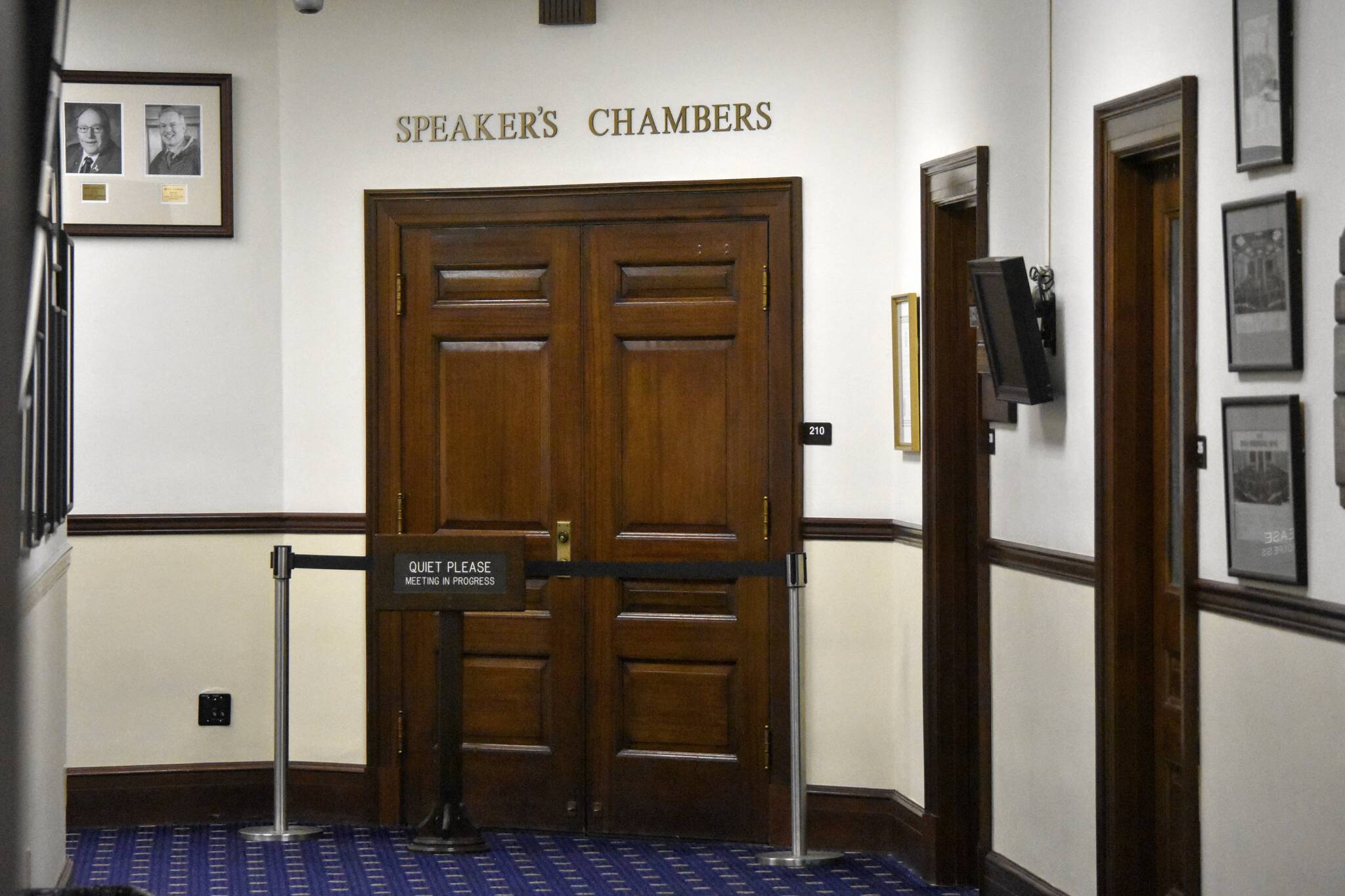The Alaska House of Representatives continued negotiations behind closed doors Friday, canceling the day’s floor session and scheduling another for Saturday morning at 10 a.m.
“The determination of when to go on the floor is taking longer than anticipated, but the delay is not being made lightly,” said House Majority Coalition spokesperson Joe Plesha. “The decision whether to concur or not with the Senate’s budget will have far-reaching impacts on the future of Alaska. The House Coalition was founded on the principle of fiscal responsibility and they take that obligation too seriously to rush the outcome.”
House floor sessions have been scheduled and eventually canceled every day since Wednesday this week, following the Alaska Senate’s approval of the budget bill Tuesday afternoon. Senators passed a budget with more than $1 billion added through the amendment process, including statutory Permanent Fund dividends of $4,300 and energy relief payments of $1,300.
[With thin margins in the House, floor debate is delayed]
Several lawmakers in both bodies have been critical of the bill, calling it irresponsible, while defenders say the high price of oil and state savings will cover the cost. But the state not following the statutory formula for dividends has been a major sticking point for a number of mostly Republican lawmakers, and with only 21 votes needed to concur on the budget, there’s a possibility the House could approve the budget and send it to Gov. Mike Dunleavy, who’s repeatedly advocated for a statutory dividend.
The House Majority Coalition has only 21 members and some members have voted for full dividends before. Likewise, some members of the Republican minority, Fairbanks Reps. Bart LeBon and Steve Thompson, have voted against statutory dividends in the past.
Private organizations have weighed in with Alaska AFL-CIO and the Alaska Chamber of Commerce both issuing statements calling on lawmakers to reject the budget.
If the House does vote against the budget, the bill will be negotiated by a conference committee made up of two members of the majority from each body — typically the co-chairs of the finance committees — and a member of the minority from each body.
But the constitutional end of session is Wednesday, May 18, and if lawmakers are unable to finish the budget process by then they will need to be called into special session. Lawmakers can call themselves into special session or the governor can issue a proclamation. Last year, this Legislature went through four special sessions before, the most in state history, but this year is an election year, and lawmakers can’t campaign while in session.
• Contact reporter Peter Segall at psegall@juneauempire.com. Follow him on Twitter at @SegallJnuEmpire.

